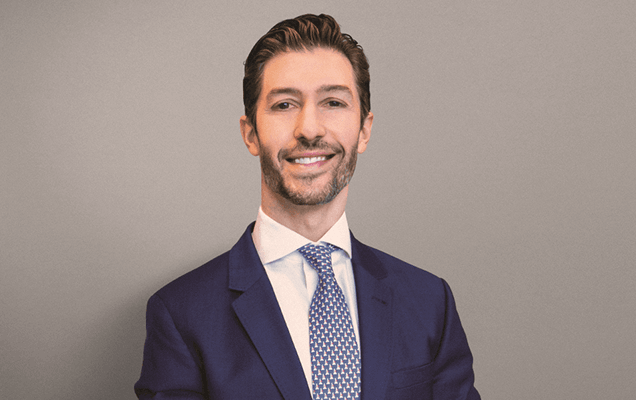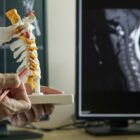If you have an upcoming Chiari decompression surgery scheduled, one way to prepare for your procedure is to understand the costs involved and to ensure you’ve planned accordingly. This will help you avoid any unanticipated costs during your recovery so you can focus on healing after your procedure.
About Chiari Decompression Surgery
Though there are different types of Chiari decompression surgery, each has the same treatment goal. Patients with a Chiari malformation have a mismatch between the size of the posterior aspect of the skull and the inferior portion of the brain, called the cerebellum which should fit inside. As a result, the cerebellum, gets displaced through the hole at the base of the skull, the foramen magnum, through which also passes the spinal cord.
The goal of Chiari decompression surgery is to create space to accommodate the cerebellum, restoring the flow of cerebrospinal fluids and decreasing intracranial pressure, as well as creating space around the spinal cord if necessary. This may be accomplished via traditional or minimally invasive Chiari decompression surgery.
In traditional dural opening Chiari decompression surgery, the surgeon will remove a small section of the skull and dura covering the brain in order to create more space and alleviate pressure. He or she will place a small patch to cover the area, then close the incision with sutures or staples.
Minimally invasive Chiari decompression surgery is similar but uses microscopic visualization and special instruments, allowing for a much smaller incision and eliminating the need for patch graft repair. Depending on your individual condition, minimally invasive or traditional Chiari decompression surgery may be coupled with cervical laminectomy surgery, where the surgeon removes a small piece of the uppermost vertebrae to create further space around the spinal cord.
Paying for the Surgery
Insurance coverage can be difficult to navigate, so it is a good idea to ensure you have a complete understanding of what your policy will and will not cover prior to your procedure. To help you make sense of your insurance coverage, there are two good sources to use: the benefits specialist at your surgeon’s office, if one is available, and a representative from your insurance company.
Meet With a Benefits Specialist
A benefits specialist is someone who works in a doctor’s office and helps patients better understand their insurance coverage. Before meeting with the benefits specialist, be sure to gather all of your insurance information so he or she can best assist you. He or she will help you determine whether or not the practice is in or out of network, what that means for you and which services are covered.
Contact Your Insurance Company
Not every office employs a benefits specialist, so you may need to contact your insurance company directly. Helpful information that you should know prior to the call includes your surgeon’s name and contact information, your diagnosis, codes for any scheduled medical procedures and the practice’s tax identification number.
Though every insurance policy is different, chances are there will be some costs associated with your procedure that are not covered. This is why it is important to discuss your policy with an expert who can help you determine whether or not additional services, such as anesthesia, imaging, blood work, consults or your hospital, stay are covered.
Determine If Your Surgeon Is in or Out of Network
Besides what procedures will and will not be covered, you may also wish to find out whether your neurosurgeon is in or out of network. Out of network does not mean the services won’t be covered, but you may be expected to pay more out of pocket and/or there may be additional steps you need to take before treatment.
Neurosurgeons of New Jersey currently participates in the following health insurance networks in the Tristate Area:
- Aetna (NY)
- Affinity Health Plan (NY)
- Cigna (NJ/NY)
- Empire Blue Cross Blue Shield (NY)
- Horizon Blue Cross Blue Shield (NJ)
- Medicare (NJ/NY)
- NJ Medicaid
- NY Medicaid
- NY Workers Comp & No-Fault
- Oxford/United Healthcare (NJ/NY)
- Personal Injury Protection (PIP)/No-Fault (NJ)
- United Healthcare: The Empire Plan (NJ)
- Workers’ Compensation (NJ)
Let's build your treatment
path, together.
Whether you consult with a benefits specialist or a contact person at your insurance company, understanding insurance coverage can be tricky for a layperson, and there may be nuances better understood by an expert in the area. To avoid incurring unexpected costs, be sure to find out what is covered and seek out pre-authorization if your insurance company requires it.
Other Costs to Consider
Besides the Chiari decompression surgery, there are other direct and indirect costs that are easily overlooked. Some are related to the surgery itself, and others are everyday things that you may not be able to tend to yourself during your recovery.
Additional Medical Costs
First, depending upon your insurance, you may have to pay extra for services such as anesthesia, imaging, blood work and specialist consultations. Because you will need to recover in the hospital for at least a few days following surgery, there will be costs associated with your stay. You will also leave the hospital for several prescriptions including pain medication, and you should be aware of your coverage and deductible.
Follow-Up Visits
Once you leave the hospital and return home, you may have further healthcare costs for follow-up visits, imaging, diagnostic tests, consults and/or physical therapy. While many of these may fall under your coverage, it is best to be sure before the fact to avoid any surprises during your recovery.
Time off From Work/Household Services/Child Care
During your recovery, you may also require extra help around the home and/or with child care. You may find that you require a cleaning service to help with keeping your home in order or transportation for running errands. These costs can add up quickly and may not be covered, so take care to account for them accordingly.
Finally, keep in mind that you will certainly have to miss at least some work during your recovery period and may be home for a significant period of time. If you do not have paid leave, it is important to consider making preparations beforehand. This will help you avoid financial stress and allow you to focus entirely on your health while recovering.
Preparation Saves Time and Money
By educating yourself about all the costs of your treatment prior to your procedure, you can rest easier during your surgery and recovery. Be sure to follow up with a benefits specialist or insurance representative to help you thoroughly understand your insurance coverage. This way, you can be certain what is covered, how much is covered, what you will be expected to pay up front, what you will be expected to pay later and any other steps you may need to take before the day of your surgery.
When it comes time for your recovery from Chiari decompression surgery, you will be so glad you took steps beforehand to ensure your peace of mind.

About Dr. Paul R. Gigante
Dr. Paul Gigante is an accomplished neurosurgeon in Central Jersey and a proud member of Neurosurgeons of New Jersey, practicing out of their Livingston office located conveniently on South Orange Avenue. He is recognized as a leading spine surgeon for both minimally invasive and complex procedures. Dr. Gigante is a graduate of Harvard Medical School and completed his fellowship at Stanford University in functional neurosurgery. His specialties are deep brain stimulation for Parkinson’s Disease and other nervous system disorders, spinal cord stimulation for chronic pain disorders, and surgical treatments for chronic nerve pain conditions. He also specializes in brain tumor surgeries. Dr. Paul Gigante is currently accepting new patients.






